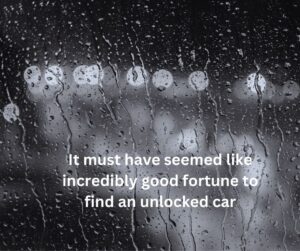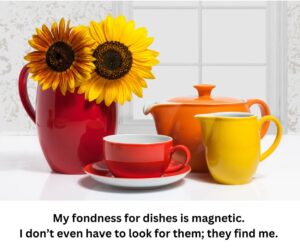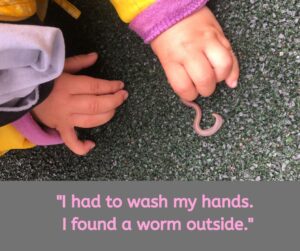Our latest car repair put a $1200 dent in our budget. Adding insult to injury, when the husband picked up the car, he opened the door to smell it reeked of cigarette smoke. The console, seats and floors were littered with cigarillo butts, ashes, cracker crumbs and debris.
He asked the manager what happened, and the manager said, “I thought you brought it in like that.”
Truth is, the vehicle was in sorry shape a few weeks ago when we took three grands to visit our son’s brood in the country. They left dirt, mud, sticks, rocks, and even a few chicken feathers in the car.
But there was no smoking—unless they’re putting cigarettes in Happy Meals these days and three little girls were blowing smoke out the back windows.
We cleaned it all out the next day. In my book, happiness is a clean car – probably because our two cars have 100,000 and 200,000 miles on them, and a clean car feels like a new car. We hope to fool ourselves for another 50,000 miles.
The husband was adamant that we dropped off a clean car.
Turns out the repair shop neglected to lock the car overnight and a homeless person took shelter from the rain and the cold. I’ve often wondered where the homeless we see in the area shelter in the biting cold. Now we know. It must have seemed like incredibly good fortune to find an unlocked car.
The smell of smoke and homelessness now permeates the vehicle. Though the shop manager paid to have it detail cleaned, smoke is a stubborn smell to eliminate.
The car smells like a noxious air freshener fused with a chain smoker doused in cheap aftershave. Marlboro meets mint.
The car is sitting in our driveway, windows down, doors hanging open and the back liftgate up. We bring class to the neighborhood.
After viewing the shop’s security camera tapes, the manager found our overnight guest. Tall. Skinny. Early 60s. Female. He said she’s a regular at a nearby strip mall, comes in his shop about once a month, grabs a coffee and talks to herself. She left a jacket and box of saltines in the car. She’s probably not even aware of that.
You can’t get mad at someone who is wet and cold, incoherent, and lives on cigarettes and crackers.
You can’t get mad at a shop owner who made good on a bad situation, although you might like a word with whoever was supposed to lock the cars left overnight in their lot.
Happiness isn’t really just a clean car. Happiness is having a safe and comfortable place to sleep, food on the table and not being in dire need of mental health care.
The smell in the car is gradually going away; tragically on every count, the problem of homelessness is not.





